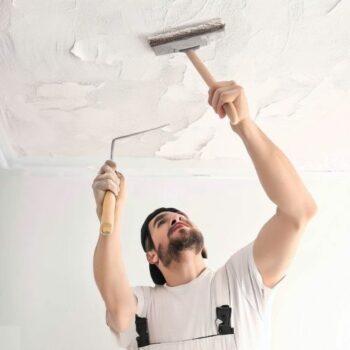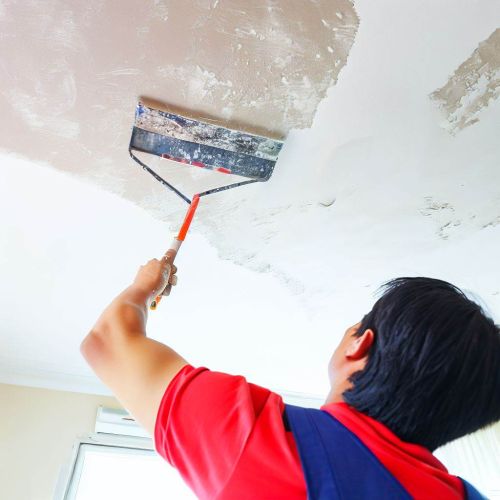
If you have a popcorn ceiling containing asbestos, its removal can be a costly and messy process. It requires obtaining town hall permission and involves expensive extraction and specialized recycling procedures, all while ensuring highly trained staff wear specific protective clothing to avoid contact with asbestos particles.
However, opting for a stretch ceiling eliminates the need for any of these requirements, as the existing asbestos ceiling remains untouched, and there is no risk of asbestos particles becoming airborne. Installing a stretch ceiling beneath the asbestos ceiling does not require a permit, and the process is entirely dust-free. This saves you both money and time while ensuring a safe and efficient solution for your ceiling needs.
Article from : EPA United States Environmental Protection Agency
https://www.epa.gov/asbestos/protect-your-family-exposures-asbestos
…/… Generally, you can’t tell whether a material contains asbestos simply by looking at it, unless it is labeled. If in doubt, treat the material as if it contains asbestos and leave it alone. You may want to have your home inspected for asbestos-containing materials by a trained and accredited asbestos professional if:
- You are planning to remodel your home (remodeling can disturb building materials)
- Your home has damaged building materials (like crumbling drywall and insulation that is falling apart)
A trained and accredited asbestos professional should take samples for analysis, since a professional knows what to look for, and because there may be an increased health risk if fibers are released. In fact, if done incorrectly, sampling can be more hazardous than leaving the material alone. Taking samples yourself is not recommended …/…
…/…
If You Hire an Asbestos Professional Contractor
- Before work begins, get a written contract specifying the work plan, cleanup, and the applicable federal, state, and local regulations which the contractor must follow (such as notification requirements, removal, handling and disposal procedures). Check with state agencies and asbestos worker protection laws to learn about federal, state, and local laws.
- At the end of the job, get written assurance from the contractor that all procedures have been followed.
- Ensure the contractor follows these procedures:
- Avoids spreading or tracking asbestos dust into other areas of your home.
- Disposes of all materials, disposable equipment and clothing used in the job in sealed, leak-proof, and labeled heavy-duty plastic bags. The work site should be visually free of dust and debris.
- Upon completion, clean the entire area thoroughly with wet mops, wet rags, sponges, or HEPA (high-efficiency particulate air) vacuum cleaners. A regular vacuum cleaner should never be used.
- Does not break removed material into small pieces. This could release asbestos fibers into the air.
- Applies a wetting agent to the asbestos material with a hand sprayer that creates a fine mist before removal. Wet fibers do not float in the air as easily as dry fibers and will be easier to clean up.
- Ensures the work site is clearly marked as a hazard area. Do not allow household members and pets into the area until work is completed.
- Seals the work area from the rest of the house using plastic sheeting and duct tape, and turns off the heating and air conditioning system. For some repairs, such as pipe insulation removal, plastic glove bags may be adequate. They must be sealed with tape and properly disposed of when the job is complete.
After the work is complete, an inspector or an independent air testing contractor may perform air monitoring to make sure there is no increase of asbestos fibers in the air which may be necessary to assure that the contractor’s job was done properly …/…

Monday-Friday : 9:00am - 6:00pm
Saturday 9:00am - 2:00pm
ceilingmiami@gmail.com
Miami - Orlando - Jacksonville
Naples - Tampa - Gainesville
Call Today: 786.334.0392
Photo Credits: OneStretchCeiling
